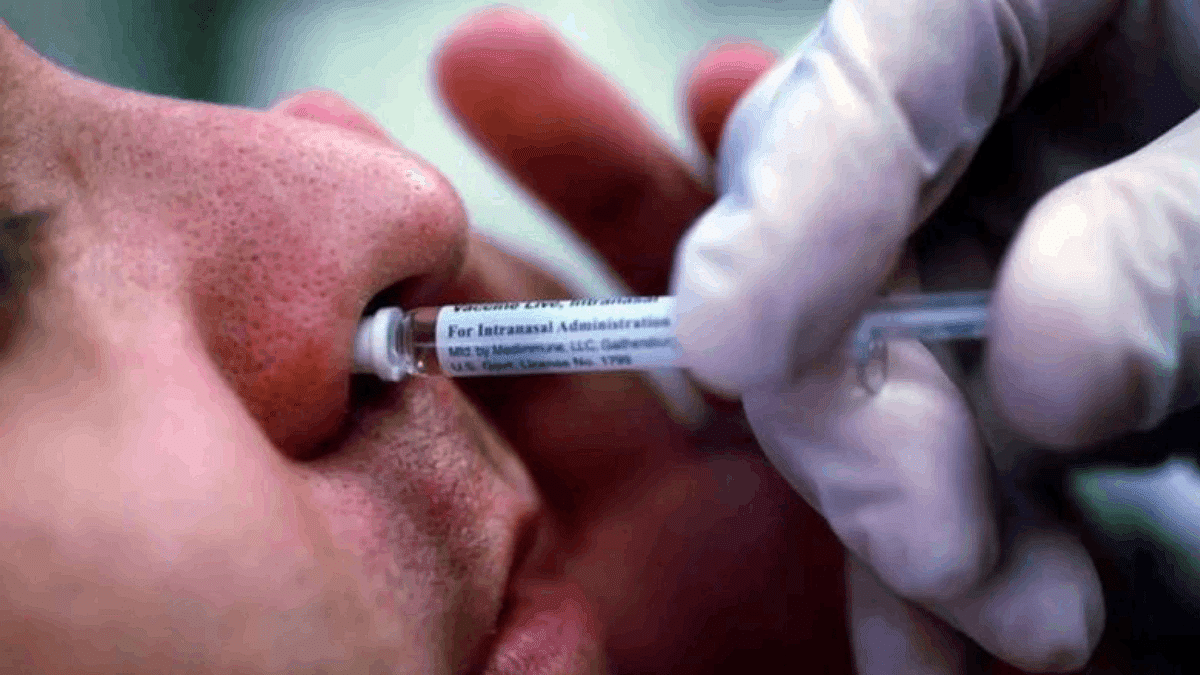New Delhi: India’s first nasal vaccine against influenza that has been developed by vaccine maker Serum Institute of India, Nasovac S4, was launched by Pune-based diagnostic company Mylab Discovery Solutions last week.
In a statement, Mylab said Nasovac S4 is a live quadrivalent influenza vaccine containing four flu virus strains — two influenza Type A virus strains (A/H1N1 and A/H3N2) and two Type B virus strains (Victoria and Yamagata lineage). These are the two types that cause seasonal epidemics of disease.
Indicated for individuals above the age of 2, Nasovac S4 actively immunises against influenza caused by these strains, the company said, suggesting it yearly.
This nasal spray flu vaccine initiates action in the nasal passages, stimulating the immune system to produce antibodies against influenza infection.
Priced at Rs 1,590 per dose, this is being seen as a major step towards raising the acceptance of flu vaccines in India.
Influenza vaccines are not covered under the government’s Universal Immunization Programme and are privately available. Most of the nasal vaccines available in India earlier cost Rs 2,000-2,500 per dose.
Dr. Rohit Mukherjee, consultant, pulmonology sleep medicine, with Accord Superspeciality Hospital in Faridabad, said flu vaccines prevent the virus from spreading and reduce the risk of complications.
“The nasal vaccine, in particular, offers dual benefits of systemic and local protection from viral adherence on the mucosal surface of upper respiratory airways, without the pain or fear of needle-based injection,” he said.
Also read: Can mixing traditional & modern medicines help treat cancer? Govt wants to find out
WHO recommendations
The World Health Organization says that there are around a billion, or 100 crore, global cases of seasonal influenza annually, including 30–50 lakh cases of severe illness. It causes 2,90,000-6,50,000 respiratory deaths annually.
Also, 99 percent of deaths in children under five years of age with influenza-related lower respiratory tract infections are in developing countries such as India.
The UN health body recommends flu shots for pregnant women, children aged between six months and five years, people over 65, those with chronic medical conditions and health workers.
According to the Indian Academy of Pediatrics — the largest network of pediatricians in the country — flu vaccines should be taken annually by children aged between six months and 5 years and those with high risk conditions. But in India, the uptake of flu vaccine among children as well as senior adults has traditionally been low.
For instance, the National Longitudinal Ageing Study in India, a national household survey conducted during 2017–2018, showed that only 1.5 percent of adults aged 45 or above were vaccinated against influenza.
Need for flu vaccine
Dr Akshay Budhraja, senior consultant, respiratory and sleep medicine with a Dwarka-based hospital, Aakash Healthcare, pointed out that India grapples with a high prevalence of respiratory ailments such as asthma, chronic obstructive pulmonary disease (COPD), and interstitial lung diseases.
Influenza can act as a potent trigger, worsening these pre-existing conditions and causing severe respiratory distress, he said, adding that pulmonologists see first hand the detrimental effects of the flu on patients, especially those with compromised lung function.
“A nasal flu vaccine holds promise in increasing the acceptance of flu vaccines in India for multiple reasons — ease of administration, possibly enhanced efficacy, reduced vaccine hesitancy and contribution to herd immunity.
Some studies suggest that nasal vaccines might provide better protection, particularly in children. If this is substantiated, it could significantly boost the vaccine’s acceptance, according to Budhraja.
Vaccine hesitancy is a major concern in India. The availability of a different mode of vaccination could make people more willing to get vaccinated, potentially improving overall coverage.
Increasing vaccine acceptance in India can also lead to higher population immunity, protecting not only those vaccinated but also those unable to receive the vaccine, such as the immuno-compromised. This could lead to a reduction in the overall flu burden in the country.
(Edited by Smriti Sinha)
Also read: Move over semaglutide, new drug on the horizon promises to melt only fat, not muscle

